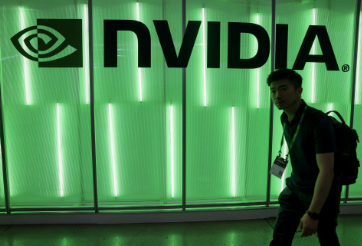Key Tech Stocks Affected Across Asia
South Korean chipmakers were among the hardest hit, with SK Hynix and Samsung Electronics leading the losses. SK Hynix, which produces high bandwidth memory (HBM) chips used in AI applications for Nvidia, saw its shares plunge by up to 6.74%. Samsung Electronics, a heavyweight in the South Korean stock market and another Nvidia supplier, faced a drop of 3.8%.
In Taiwan, TSMC (Taiwan Semiconductor Manufacturing Company) and Hon Hai Precision Industry (commonly known as Foxconn) also experienced declines, falling by 2.8% and 2.96%, respectively. These companies are critical suppliers to Nvidia, and their stock performance reflects the broader market’s concerns about Nvidia’s future growth prospects.
Spillover to Other Tech Markets
The downturn wasn’t limited to Nvidia’s direct suppliers. Japanese semiconductor companies such as Renesas Electronics, Advantest, and Tokyo Electron recorded losses of 3.2%, 3.6%, and 3.49%, respectively. These declines highlight the pervasive impact of Nvidia’s earnings report on the broader tech sector in Asia.

Even Chinese chipmakers listed in Hong Kong, which have limited direct ties to Nvidia, were affected. SMIC (Semiconductor Manufacturing International Corporation) and Hua Hong Semiconductor saw their shares dip by 1.4% and 1.66%, respectively.
Market Analysts Weigh In
The reaction to Nvidia’s earnings appears to be driven by fears that the company’s rapid growth may be slowing. Although Nvidia’s results were strong, with impressive revenue and earnings, the market may be recalibrating expectations, according to Luke Rahbari, CEO of Equity Armor Investments. Speaking on CNBC’s “Squawk Box Asia,” Rahbari noted, “For so many quarters, Nvidia had blown out expectations… People [are] maybe thinking the runaway train is slowing down a little bit.”
Despite this, Rahbari remains bullish on Nvidia, emphasizing the company’s dominant position in the semiconductor industry. However, concerns about the pace of growth are significant given Nvidia’s current valuation, which trades at 40-50 times forward earnings.
Nvidia’s Margins Under Scrutiny
Adding to the market’s unease was Nvidia’s reported gross margin, which slipped to 75.1% from 78.4% in the previous quarter. Nvidia also provided an annual gross margin forecast in the “mid-70% range,” slightly below analysts’ estimates of 76.4%.
Mark Luschini, Chief Investment Strategist at Janney Montgomery Scott, described the decline in Nvidia shares as a “rounding error,” considering the company’s year-to-date gain of approximately 150%. However, he acknowledged that the pace of Nvidia’s growth has been slowing for four consecutive quarters, which poses challenges in meeting high investor expectations.
The ripple effects of Nvidia’s earnings report have highlighted the interconnectedness of the global tech supply chain, particularly in Asia, where key suppliers are heavily reliant on U.S. tech giants. As markets continue to digest the implications of Nvidia’s performance, tech stocks across the region may remain volatile in the short term.
In Asia saw significant declines following Nvidia’s latest earnings report, which, despite strong results, failed to meet the most optimistic expectations for future growth. Nvidia reported a 122% year-over-year increase in revenue for the second quarter, reaching $30 billion. However, its guidance for the third quarter of FY2025, projecting revenues around $32.5 billion, fell short of the highest market forecasts, leading to an 8% drop in Nvidia’s share price during after-hours trading.
This decline in Nvidia’s stock had a ripple effect across Asia’s tech sector. Major companies like South Korea’s SK Hynix and Samsung Electronics, both key suppliers to Nvidia, saw their shares fall by as much as 6.74% and 3.8%, respectively. The negative sentiment extended to other major tech stocks in Taiwan, Japan, and even Hong Kong, with Taiwan Semiconductor Manufacturing Company (TSMC) and Hon Hai Precision Industry (Foxconn) also experiencing losses.
The broader impact was felt across various Asian stock markets, with indices such as Japan’s Nikkei, South Korea’s Kospi, and Hong Kong’s Hang Seng Index all registering declines. The downturn was partly driven by concerns that Nvidia’s growth momentum, fueled by the AI boom, might be slowing, affecting the overall tech sector’s outlook in the region.
These developments highlight the interconnectedness of global tech markets and the significant influence of major players like Nvidia on the performance of related companies and markets across Asia.
For more detailed insights, you can visit sources like FinancialJuice and KAOHOON International.






